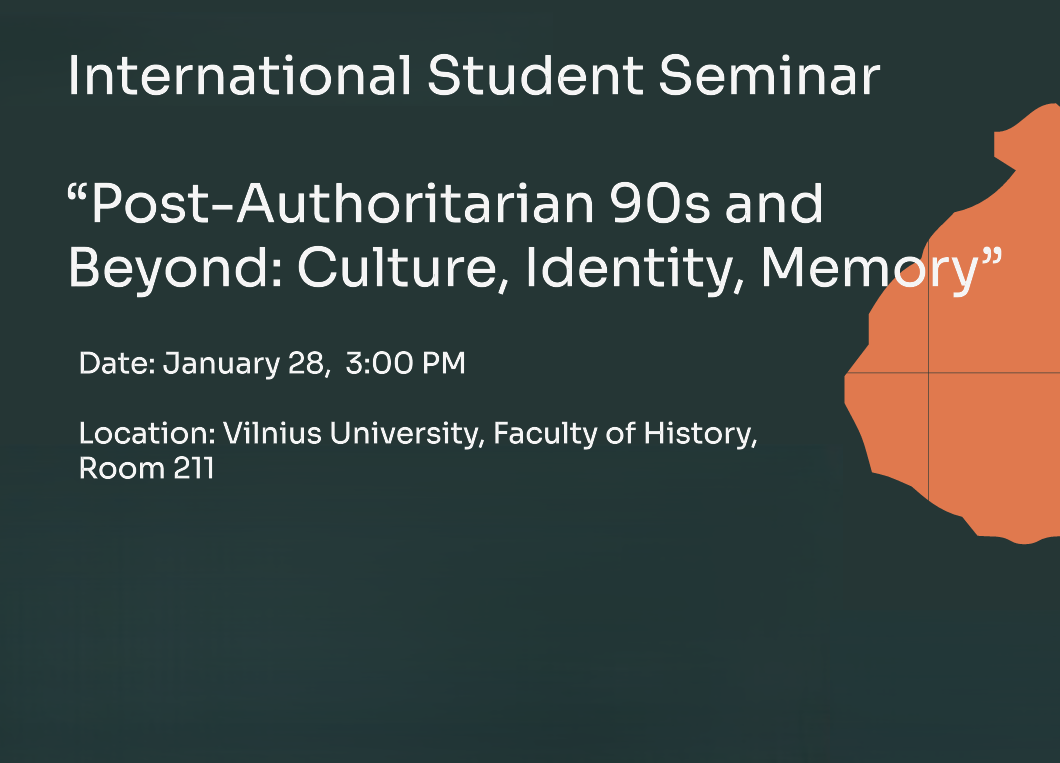
January 8, 2026
International Student Seminar “Post-Authoritarian 90s and Beyond: Culture, Identity, Memory”
PAScapes invites to the international student seminar “Post-Authoritarian 90s and Beyond: Culture, Identity, Memory”, organised…
(Post)Authoritarian Landscapes Research Centre
Centre of Excellence



(Post)Authoritarian Landscapes Research Centre
Centre of Excellence


An eco-social perspective on society’s existence is becoming one of the most relevant scientific directions, responding to climate crisis and seeking ways to conceptualize, define, and analyze them.
It’s acknowledged that ecological and social issues can no longer be addressed separately, thus the mutual dependency of humans and their surrounding world is at the forefront.

The (Post)Authoritarian Landscapes Research Centre (PAScapes) is dedicated to exploring the complex relationship between society and the environment within distinct historical contexts, particularly under authoritarian regimes. While all political systems throughout the 20th century have influenced the natural world, authoritarian regimes have garnered attention due to the magnitude of their ambitions, the severity of their impacts, and their impediment to the development of ecological consciousness.
As many nations now experience declines in democratic practices or leaders sympathetic to autocracy, the question of authoritarian landscapes is not merely of historical interest but an urgent issue in academic discussions.
Reconstruction of ecosocial ideas within the context of (post)authoritarian landscapes, analyzing philosophical concepts of ecosocial imagination and exploring new forms of human self-awareness and thought in relation to the environment.
Kristupas Sabolius, Head of group:
Kristupas Sabolius, Mintautas Gutauskas, Vaiva Daraškevičiūtė, Alice Iacobone, Anda Pleniceanu
A study of cultural landscapes (urban, agrarian, and restructured natural ones) formed in various (post)authoritarian states, focusing on their evolution and the influence of political, economic, social, and technological factors.
Tomas Vaiseta, Head of Group:
Camille Robert-Boeuf, Darijus Veteikis, Gintautas Vėlius, Ieva Misiūnė, Jurgita Mačiulytė, Nerijus Šepetys, Ričardas Skorupskas, Rugilė Rožėnė, Tomas Vaiseta
Examining how political, technological, and economic interventions affected the natural environment and the social relationships within (post)authoritarian societies.
Tadas Šarūnas, Head of Group:
Antanas Terleckas, Dalia Čiupailaitė-Višnevska, Ingrida Gečienė-Janulionė, Karolis Jonutis, Marius Ėmužis, Tadas Šarūnas, Ugnė Gudžinskaitė
Analyzing the legacy of cultural landscapes in authoritarian states after transformation, societal attitudes toward them, and questions regarding their recognition, memory, and related social and cultural issues.
Marija Drėmaitė, Head of Group:
Marija Drėmaitė, Viltė Janušauskaitė, Elda Muco, Ineta Šuopytė-Butkienė